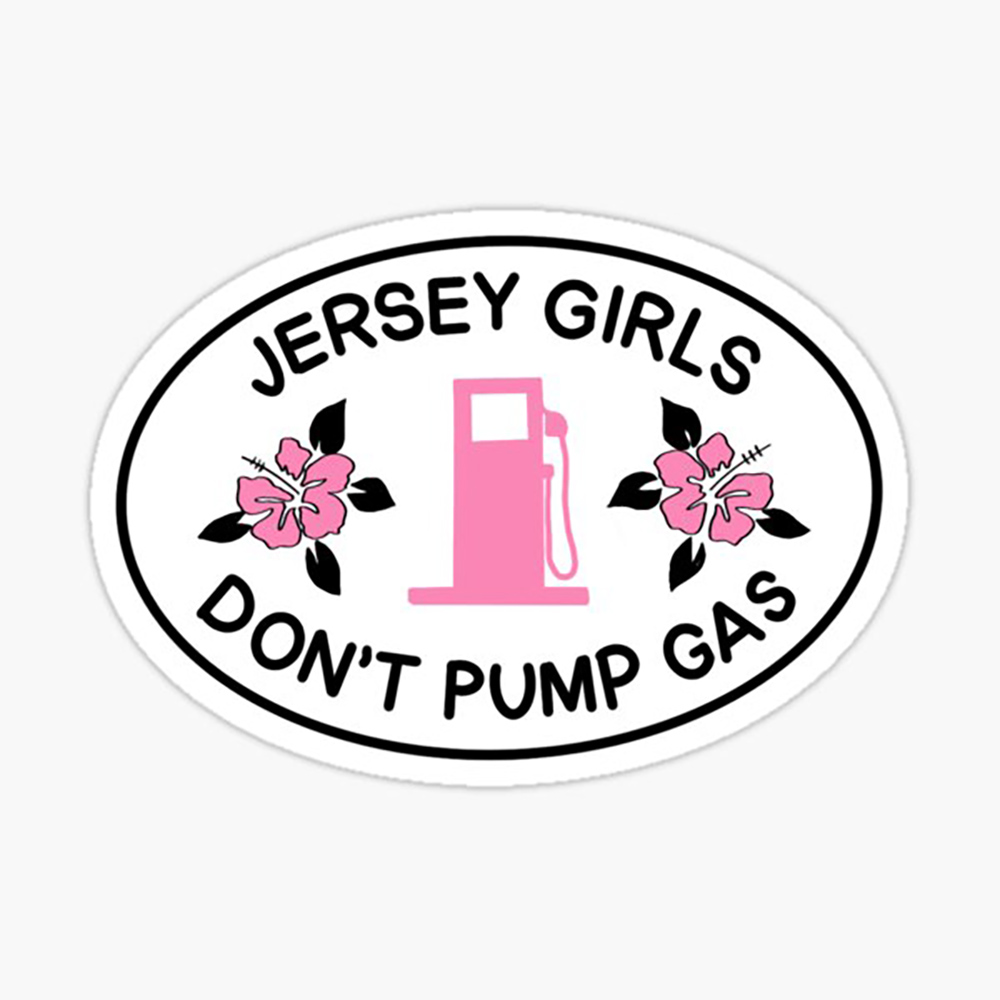By Sarah Fertsch
Staff Writer
Mallory Gross has been waiting at the Wawa in Somers Point. She grumbles to herself, knowing that she will be late for her shift at a local diner. The gas station is packed with Saturday daytrippers stocking up on fuel and hoagies. Amidst Gross’s frustration, her hot pink bumper sticker boasts, “Jersey Girls don’t pump gas.”
“All these Pennsylvania people pump gas every day without a problem,” said Gross. “It’s nice and convenient to have a gas attendant, but why is it necessary?”
Many New Jersey folks have asked the same question. New Jersey and Oregon are the only two states in the nation that prohibit self-service at gas pumps.
The 73-year-old ban began in the 1940s, when a gas station owner in Hackensack decided to let people pump their own gas in exchange for a reduced price (19 cents per gallon compared to 22 cents at other stations).
Competitors were furious because they were losing customers rapidly. So gas station owners banded together to form the New Jersey Gasoline Convenience Automotive Association, which successfully lobbied the state Legislature to make self-service at gas stations illegal.
The 1949 law, called the Gasoline Dispensing Safety Act, cites several potential hazards associated with self-serve gas pumping including exposure to toxic fumes – especially for pregnant women – fire hazards from smokers, poor vehicle maintenance as a result of gas attendant inattention, crime risks and concerns about safety for people with limited mobility. It also requires those dispensing fuel to be given safety instructions.
Since then, periods of high gas prices like the one sweeping the nation now have brought scrutiny to New Jersey’s peculiar no-self-service status. Legal challenges in 1951 and 1988 failed to overturn the seemingly antiquated law. And in 1981, when gas prices were skyrocketing after the 1979 oil crisis, state Assemblyman and future Senator Gerald Cardinale championed self-serve gas legislation.
No matter how many attempts the Bergen County Republican made over the years to get rid of the law legislatively, none succeeded.
For generations, Jersey folks have prided themselves in the convenience of gas attendants and the low prices they paid for fuel compared to other states. That began to change in 2016 when Gov. Chris Christie raised gas taxes significantly, moving the price of gas much closer Pennsylvania’s rates.
At 69.1 cents per gallon, New Jersey has the fifth highest gas tax in the nation behind fourth-place Hawaii at 70.09, third-place Pennsylvania at 77.1, second-place Illinois at 78, and first-place California at 86.55 cents, according to the American Petroleum Institute.
Customer convenience is just part of the reason why self-serve has proved to be a hard sell. Independent gas station owners fear the competition from large operators that would be created if the ban were lifted. NPR reported that if New Jersey were to remove the ban, the price of gas would drop between 7 and 23 cents per gallon, potentially saving drivers tens of dollars per fill-up.
If self-service makes it through the Legislature and is signed by Gov. Phil Murphy, fewer attendants would be needed and jobs would be affected. Adam Christianson, a 22-year-old gas attendant at Royal Farms, cringed at the idea of self-service. “I like being outside talking with people while I work,” Christianson said. “Nope. Nope. I don’t like the idea of change at all.”
A Rutgers-Eagleton poll published in March 2022 concluded that 73 percent of New Jersey residents are opposed to pumping their own gas. A Monmouth University poll published a month later found that 54 percent of New Jersey residents prefer self-service as a cheaper alternative, as long as full-service is still available at select stations. The same survey reported that if a self-service option were available at 15 cents less than the traditional price per gallon of fuel, 70 percent of survey respondents would choose to pump their own.
Gov. Murphy, when he commented on the issue earlier this year, said he would consider allowing self-serve, but knows the political pitfalls are real.
“Self-service gas, that’s been a political third rail in New Jersey, which I have historically not crossed,” said Murphy. He left open the possibility of backing a bill if it could make life in New Jersey more affordable for residents.
Meanwhile, the Motorist Fueling Choice and Convenience Act remains in the Assembly and Economic Development Committee awaiting details to be completed by the Office of Legislative Services.
Assembly Bill A3105 would allow all gas stations within the state to provide self-service or continue offering full-service to customers. Stations with more than four pumps would be required to provide full service between 8 a.m. and 8 p.m. Stations could choose to charge less per gallon if drivers pump their own fuel.
Champions of the bill claim that the COVID-19 pandemic has caused inflation, and labor shortages all over the country including at gas stations. New Jerseyans need cheaper solutions, they argue.
Democratic Senate President Nicholas Scutari has stated that he does not support the bill. His backing is considered crucial to the bill’s passage.
“The people of New Jersey are very clear in wanting to keep the system we have now,” Scutari said in a policy meeting. Without the president’s support, the bill has hit a dead end. “If public sentiment changes, I would reconsider.”
What do you think? Do you mind pumping your own gas? Let us know by emailing us at shorelocalnews@gmail.com.






